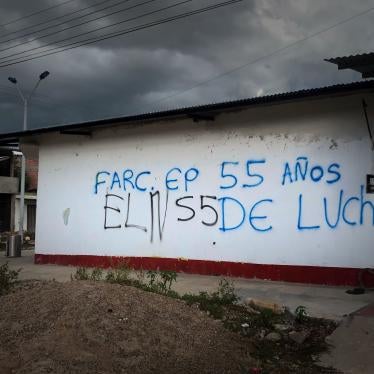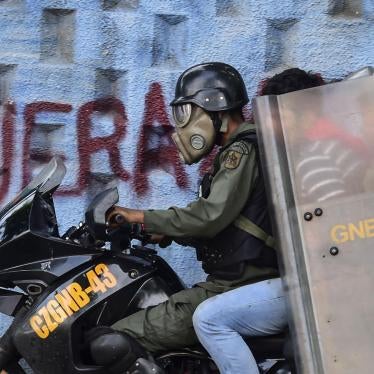Ottawa, Canada
Thank you for this opportunity to address the Committee. We appreciate your recognition of the importance of the cluster munition issue. We are at a special moment in time, when governments and civil society are once again coming together, in response to a humanitarian imperative, to create a treaty that will save countless lives in the future. This happened successfully with the antipersonnel landmine crisis ten years ago. It can happen again now with respect to deadly cluster munitions-if the political will is there, if governments can again show courage and compassion, and if dubious military interests are not allowed to take precedence over well documented humanitarian concerns.
Canada, perhaps above all other nations, should be at the forefront of this endeavor to eradicate inaccurate and unreliable cluster munitions. It was Canada's vision, commitment, and caring that largely brought about the 1997 Mine Ban Treaty. And it has largely been Canada's ongoing dedication and hard work for the past decade that has made that treaty such a success.
Canada's leadership is needed again. But will it answer the call we are hearing from the tens of thousands of victims of cluster munitions in Lebanon, Iraq, Afghanistan, Kosovo, Kuwait, Cambodia, Laos and nearly 20 other countries? Thus far, Canada has been slow to respond, indeed reluctant to respond, to that call.
We were pleased that Canada attended the just concluded Olso Conference on Cluster Munitions, and that it joined 45 other nations in supporting a Declaration committing to the conclusion of a new treaty in 2008 that prohibits cluster munitions that cause unacceptable harm to civilians. Given Canada's absence from a similar, though weaker, declaration last November at the 5-Year Review Conference of the Convention on Conventional Weapons (CCW), this was a significant development.
We were also pleased with Canada's announcement that it will destroy the remainder of its existing stockpile of cluster munitions (its 155mm artillery projectiles with Dual Purpose Improved Conventional Munition, or DPICM, submunitions).
But there is much more that Canada can do. The best place to start would be to announce, effective immediately, a moratorium on use, production, importation or exportation of cluster munitions until a new international treaty is concluded. Austria made just such an announcement in Oslo last week. It is worth noting that, to our knowledge, Canadian forces have never used cluster munitions. One Canadian company, Bristol Aerospace Limited still lists among its products an unguided air-to-surface rocket cluster munition (the CRV-7 70mm rocket with nine M73 submunitions).
Internationally, it is important that Canada not just join the new process launched in Oslo as a somewhat reluctant late-comer. Canada should play a leading role. In part because it is the right thing to do at the national level, and consistent with Canada's strong position on humanitarian affairs and pioneering efforts to emphasize human security.
But also because of the effect Canada's leadership will have internationally. Because of the Ottawa Process on landmines and Canada's sustained leadership there, it has developed great expertise and experience relevant to promoting the cluster munition initiative outside the CCW. And Canada has the reputation and the respect that can bring many other countries into the new process.
There is concern that if Canada does not fully embrace the effort to combat dangerous cluster munitions, many other countries will stay away, concluding that if it is not important enough for Canada, the guardian of the landmine treaty, it cannot be important enough for them either.
In some of its recent public remarks, the Canadian government has cited the CCW as a viable forum for addressing cluster munitions, in part because major users and stockpilers of the weapon like the US, Russia and China are part of the CCW. This is somewhat ironic, in that the Ottawa Process on mines arose from the failure of CCW to deal adequately with antipersonnel mines, just as the new process on clusters comes on the heels of CCW failure to deal with the issue. There should not be any pretence that the CCW will be able to act urgently or effectively on cluster munitions. Recent history has shown that just won't happen.
Canada has also given indications that it is putting some faith into a technical fix for the cluster munition problem, with talk of future acquisition of clusters with low failure rates. But a technical approach does not address the indiscriminate wide area effect of cluster munitions. And Lebanon has shown us once again that submunitions with low failure rates in pristine testing conditions do not come close to meeting those specifications under combat conditions.
The dangers posed to civilian populations by cluster munitions cannot be denied. The documentation is abundant. The evidence is clear. Simply put, cluster munitions kill and injure too many civilians. This is the predicable and foreseeable outcome of use of cluster munitions.
They kill and injure too many civilians at the time of attack because of their wide area effect. Human Rights Watch and many others have concluded that when cluster munitions are used in populated areas, it should be presumed that such attacks are indiscriminate and therefore illegal. Cluster munitions also kill and injure too many civilians after conflict by leaving so many explosive duds on the ground that act as antipersonnel landmines. Moreover, cluster munitions not only kill and injure civilians, but also leave a long term socio-economic disaster to deal with as well.
When cluster munitions are used, they are used irresponsibly. Whether it's in Lebanon in 2006, or Iraq in 2003, or Afghanistan in 2001-2002, or Kosovo in 1999, or Southeast Asia in the 1960s and 70s, when cluster munitions are used, they are used irresponsibly-including by some of those nations that profess to scrupulously adhere to international humanitarian law. They get used in huge numbers. They get used in populated areas. Old, outdated models get used even when new models are available. Despite any good intentions, in actual combat cluster munitions-weapons with such inherently dangerous characteristics-get used in irresponsible ways. Clearly existing international humanitarian law is not sufficient.
We believe that the military utility of cluster munitions has been overstated, while the military dangers of cluster munitions have been understated. Cluster munitions were designed for use in the Cold War, for large-scale bombardment of massed tank and infantry formations. They have limited, if any, utility in contemporary asymmetric types of conflict. More and more conflicts are taking place in or near urban areas, an environment where clusters should not be used. Moreover, it has been shown that cluster munitions hinder the mobility of your own armed forces and endanger your own troops. An after action report by the US Third Infantry Division following its fighting in Iraq in 2003 called cluster munitions "losers," and said they were a relic of the Cold War.
In the two dozen or so countries where cluster munitions have been used, they've been used with horrific effect. But in truth, cluster munitions are a humanitarian disaster still waiting to happen. We count about 75 countries that stockpile the weapon, and 34 that produce it. There are millions and millions of cluster munitions already in stock that contain billions of submunitions. If these billions of submunitions get transferred outside of these 75 countries, including possibly to non-state actors, if they get used, if even a small portion get used, they could make the landmine crisis pale in comparison.
If we act urgently, we can avert a new crisis-one that could take a heavy toll in civilian casualties and in socio-economic costs, including the huge cost of cleaning up and trying to help the affected communities and victims.
A treaty that prohibits cluster munitions that cause unacceptable harm would be one of the most significant steps that governments could take to protect civilians from the effects of armed conflict and the aftermath of armed conflict, one of the most important steps they could take to provide civilians with adequate protection from the consequences of war.
Public outrage at cluster munitions is already strong and is growing every day. It is time for Canada to move to the forefront of those nations committed to ending the suffering caused by cluster munitions.
Thank you.






